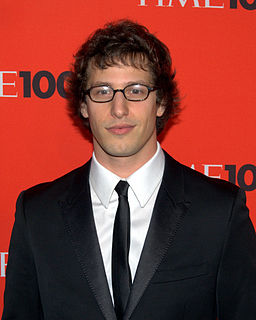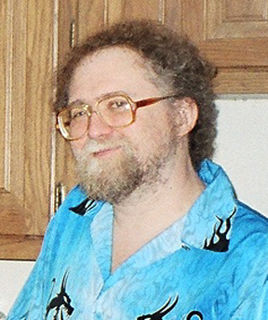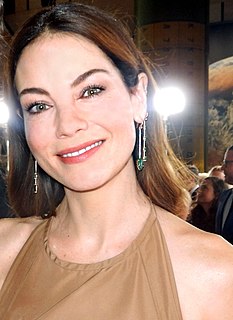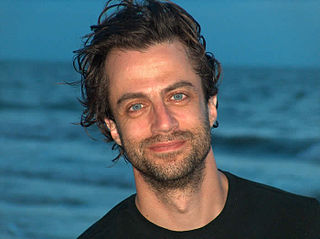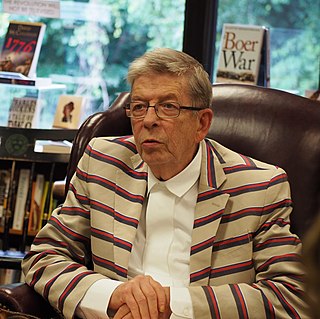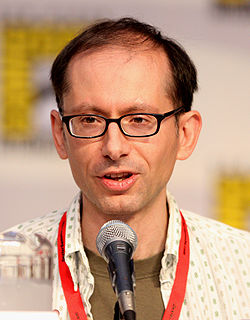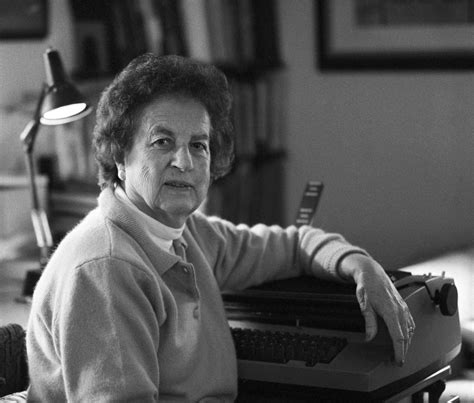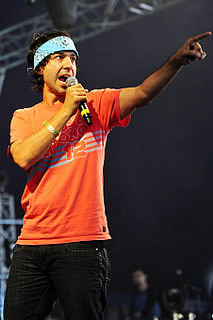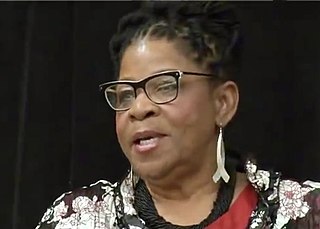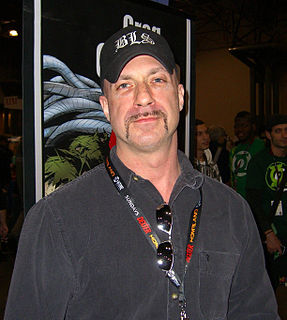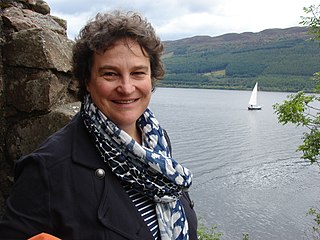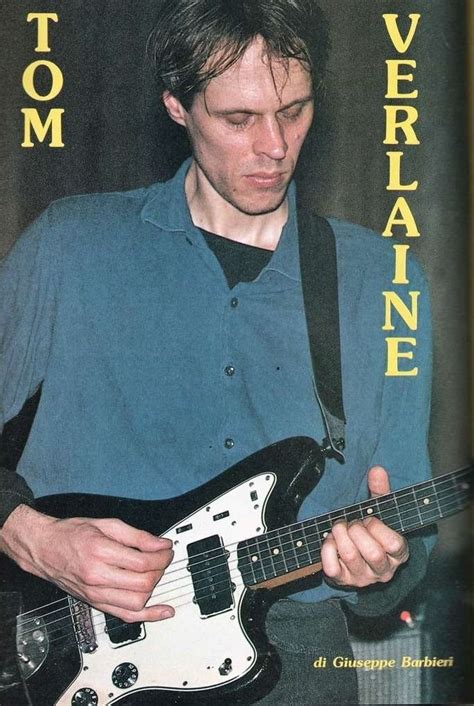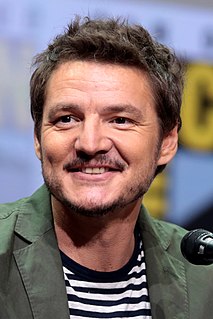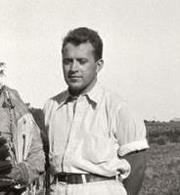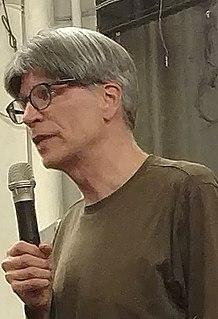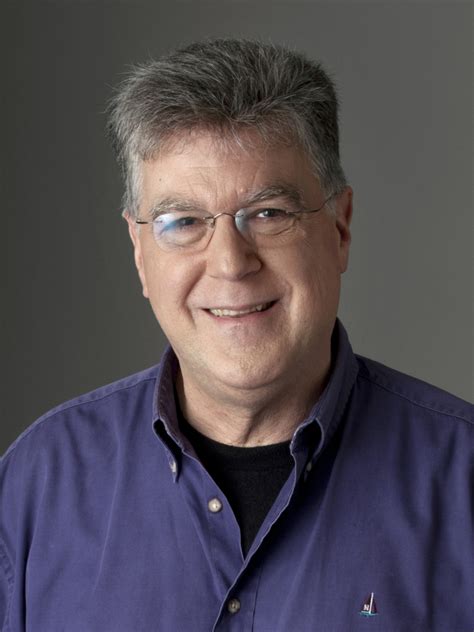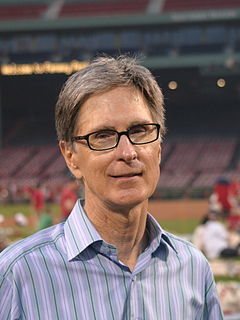Top 1200 Detective Fiction Quotes & Sayings - Page 20
Explore popular Detective Fiction quotes.
Last updated on November 16, 2024.
You asked if I thought my fiction had changed anything in the culture and the answer is no. Sure, there's been some scandal, but people are scandalized all the time; it's a way of life for them. It doesn't mean a thing. If you ask if I want my fiction to change anything in the culture, the answer is still no. What I want is to possess my readers while they are reading my book ? if I can, to possess them in ways that other writers don't. Then let them return, just as they were, to a world where everybody else is working to change, persuade, tempt, and control them.
In adopting the form of the adventure novel, Wells deepened it, raised its intellectual value, and brought into it elements of social philosophy and science. In his own field - though, of course, on a proportionately lesser scale - Wells may be likened to Dostoyevsky, who took the form of the cheap detective novel and infused it with brilliant psychological analysis.
Walter Mosley was not the first black crime writer, nor was he the first to fuse genre conventions with larger social concerns. But when 'Devil in a Blue Dress' introduced the Los Angeles-based private detective Easy Rawlins nearly 20 years ago, it was clear the author set out to stretch the boundaries of the mystery and thriller framework.
I love the rabbit hole. I spend a lot of time looking at images, Google mapping, etc. I also love to read court transcripts, FBI files, stuff like that. You go through vast, boring stretches, but the voices are always so fascinating and slowly a story begins to emerge. It's very much like playing detective.
The detective story itself is in a dilemma. It is a vein which is in danger of being worked out, the demand is constant, the powers of supply variable, and the reader, with each one he absorbs, grows a little more sophisticated and harder to please, while the novelist, after each one he writes, becomes a little more exhausted.
Whether I build a character from the ground up or develop one, whether within my own copyright or in licensed work, I can step into that character's mind. It takes a kind of voluntary dissociation akin to method acting, military planning, marketing, or detective work: to think like the other guy and work out what he's going to do next.
[True Detective] is an intense show, even in terms of the dialogue - there's a little rhythm to it, in particular in his monologues. I think on those days, he [Woody Harrelson] really had to stay in the zone. Because there's a certain cadence in which that character speaks and talks about life, you know? But then there are other days that he was able to be a little more loose.
I can think of very few science books I've read that I've called useful. What they've been is wonderful. They've actually made me feel that the world around me is a much fuller, much more wonderful, much more awesome place than I ever realized it was. That has been, for me, the wonder of science. That's why science fiction retains its compelling fascination for people. That's why the move of science fiction into biology is so intriguing. I think that science has got a wonderful story to tell.
[Michael] Chabon, who is himself a brash and playful and ebullient genre-bender, writes about how our idea of what constitutes literary fiction is a very narrow idea that, world-historically, evolved over the last sixty or seventy years or so - that until the rise of that kind of third-person-limited, middle-aged-white-guy-experiencing-enlightenment story as in some way the epitome of literary fiction - before that all kinds of crazy things that we would now define as belonging to genre were part of the literary canon.
Bolkenstein, a Minister, was speaking on the Dutch programme from London, and he said that they ought to make a collection of diaries and letters after the war. Of course, they all made a rush at my diary immediately. Just imagine how interesting it would be if I were to publish a romance of the "Secret Annexe." The title alone would be enough to make people think it was a detective story.
I've been very lucky at what's happened in my career to date, but playing something as far from me as possible is an ambition of mine - anything from a mutated baddy in a comic book action thriller, to a detective. If anything, I'd like Gary Oldman's career: he's the perfect example of it. I've love to have a really broad sweep of characters - to be able to do something edgy, surprising and unfashionable.
The desire to be liked is acceptable in real life but very problematic in fiction. Pleasantness is the enemy of good fiction. I try to write on the premise that no one is going to read my work. Because there's this terrible impulse to grovel before the reader, to make them like you, to write with the reader in mind in that way. It prevents you doing work that is ugly or upsetting or difficult. The temptation is to not be true to what you want to write and to be considerate or amusing instead. I'm always trying to fight against the impulse to make my readers like me.
I'm convinced we all are voyeurs. It's part of the detective thing. We want to know secrets and we want to know what goes on behind those windows. And not in a way that we would use to hurt anyone. There's an entertainment value to it, but at the same time we want to know: What do humans do? Do they do the same things as I do? It's a gaining of some sort of knowledge, I think.
Since the era of 'Sherlock Holmes,' private detectives had long been able to influence cases on their own. But the online detective, who had no sort of professional training or even long practice, is a purely modern phenomenon. The Internet changed everything by letting anyone become a self-appointed 'expert' on a case.
I would say that Futurama: Bender's Big Score requires a lot of concentration to watch. It's a very complicated time-travel story. Part of the joke on that was just that the complexity would be over the top. This one is a more straight-forward science-fiction story, I would say. Alien invasion and people running in terror, that kind of thing, with a slight twist of there being an inappropriate physical relationship with the big octopus monster. We've got a straight-up science-fiction movie.
I've never written a fiction before about real people. . . . I read everything that I could find by people who met them and tried to get some impression of them, but as always when you write fiction, even if you have completely fictitious characters, you start by thinking of what is plausible, what would they say, what would they be likely to do, what would they be likely to think. At some point, if it is every going to come to life, the characters seem to take over and start speaking themselves, and it happened with [COPENHAGEN].
We all have a tendency to over generalize our individual experiences. After I've published something, I'll meet someone who says, "I'm Haitian, and I don't know this, so it must not be true." Even if we're talking about a work of fiction. I've gotten very angry myself reading many things about Haiti. We're not a monolithic group; no group is. Also, it's important to keep in mind the genre in which we are writing. Fiction is full of invented stories about exceptional people in exceptional situations. Those situations are not always cheery or celebratory.
If you want to be a fiction writer, you need to start reading like a fiction writer. To do so, you need to learn about craft so that the next time you pick up a contemporary short story, you're reading it not as an abstraction floating in formaldehyde, existing simply for the theorist's dull scalpel to saw on, but as a concrete thing constructed out of words and shaped by syntax, brought to life by a writer who made several thousand choices, some large, some small, before letting that imperfect beauty, the story, walk on its own two feet.
As a biographer, I try to uncover the adventures and personalities behind each character I research. Once my character and I have reached an understanding, then I begin the detective work reading old books, old letters, old newspapers, and visiting the places where my subject lived. Often I turn up surprises, and of course, I pass them on.
Then there are some minor points that strike me as suggestive - for instance, the position of Mrs. Hubbard's sponge bag, the name of Mrs. Armstrong's mother, the detective methods of Mr. Hardman, the suggestion of Mr. MacQueen that Ratchett himself destroyed the charred note we found, Princess Dragomiroff's Christian name, and a grease spot on a Hungarian passport.
I couldn't get away with Halloween pranks 'cause my parents owned the health food store. So, it was so easy to bust me. I was the only kid on the block egging houses with those big 'ole brown eggs. Like, you didn't have to be a detective to figure it out. 'Oh, I wonder who Tofuttied my mailbox. Is it the same evil genius who filled my bird bath with Rice Dream?
I went to pick my son up from school and walked him back and was in the house preparing dinner, and he came in the house and gave me this flower of chrysanthemum that was full of ants. And he went back out to play and ran out into the street and got hit by a car. The car happened to be driven by a LAPD detective.
The vast results obtained by Science are won by no mystical faculties, by no mental processes other than those which are practicedby every one of us, in the humblest and meanest affairs of life. A detective policeman discovers a burglar from the marks made by his shoe, by a mental process identical with that by which Cuvier restored the extinct animals of Montmartre from fragments of their bones.
I can relate to someone whose life is falling apart, and they are doing the best to get by, using humor to survive. Backstrom really wears his heart on his sleeve and his life is unraveling... I would much rather hang out with that person than a slick procedural detective who has all the answers... it's human, it's frail, it's interesting.
Truth is always stranger than fiction. We craft fiction to match our sense of how things ought to be, but truth cannot be crafted. Truth is, and truth has a way of astonishing us to our knees. Reminding us, that the universe does not exist to fulfill our expectations. Because we are imperfect beings who are self-blinded to the truth of the world’s stunning complexity, we shave reality to paper thin theories and ideologies that we can easily grasp – and we call them truths. But the truth of a sea in all it’s immensity cannot be embodied in one tidewashed pebble.
Daytime television, you can tell who’s watching by the three kinds of commercials. Either it’s clinics for drying out drunks. Or it’s law firms who want to settle injury suits. Or it’s schools offering mail-order vocational degrees to make you a bookkeeper. A private detective. Or a locksmith. If you’re watching daytime television, this is your new demographic. You’re a drunk. Or a cripple. Or an idiot.
I've intentionally played things very straight with Batman. I didn't want to be too jarring for fans. Zero Year accommodates a bit more style. But, on the whole, I feel Batman - a stoic, methodical, detective - is better served a wee bit reserved. And, I'm anything but comfortable. Zero Year is pressure, man.
Read non-fiction. History, biology, entomology, mineralogy, paleontology. Get a bodyguard and do fieldwork. Find your inner fish. Don't publish too soon. Not before you have read Thomas Mann in any case. Learn by copying, sentence by sentence some of the masters. Copy Coetzee's or Sebald's sentences and see what happens to your story. Consider creative non-fiction if you want to stay in South Africa. It might be the way to go. Never neglect back and hamstring exercises, otherwise you won't be able to write your novel. One needs one's buttocks to think.
I met a retired police detective. And he said to me that the interesting thing about heatwaves, from a police perspective, is that the number of people who just walk out of their lives when the weather gets unbearable is astronomic. He said the police prepare themselves for it - for a huge rise in the instances of missing persons. People choose to disappear when it's hot. It was fascinating.
Narrative, fiction filmmaking is the culmination of several art forms: theater, art history, architecture. Whereas doc filmmaking is more pure cinema, like cinema verité is film in its purest form. You're taking random images and creating meaning out of random images, telling a story, getting meaning, capturing something that's real, that's really happening, and render this celluloid sculpture of this real thing. That's what really separates the power of doc filmmaking from fiction.
Yeah, I'd say there's probably about a couple of hundred people I admire - but that has nothing to do with what a person does themselves. That's why I never mention these things. You can read a detective novel you really like, but it had no bearing on what you do yourself, you just think, "God, how this guy wove this together!" Or you get into the energy of it. Or you see a poem which makes a great statement about sentiment, but it's not sentimental.
I try to keep each different book different from the last. So 'Sag Harbor' is very different from 'Apex Hides the Hurt;' 'The Intuitionist,' which is kind of a detective novel, is very different from 'John Henry Days.' I'm just trying to keep things rich for me creatively and for the readers who follow me.
I'm now much more excited about genre distinctions. What I still see breaking down are more the hierarchical arrangements of genres. That is, "There is literary fiction, and then there are lesser genres." I'm much more clear on the idea that literary fiction is itself a genre. It is not above other genres. It is down there in the muck with all the other genres, and it's doing the wonderful things that it does, but to give it a Y-axis, to make it high and low, just seems absurd. I stand by that.
The careful scholarship of the dedicated amateur mycophile R. Gordon Wasson reads like an exciting scientific detective story. Moreover, his willingness to pursue the quest through the wide range of linguistics, archeology, folklore, philology, ethnobotany, plant ecology, human physiology, and prehistory constitutes an object lesson to all holistic professional students of man.
Time passes, as the novelist says. The single most useful trick of fiction for our repair and refreshment: the defeat of time. A century of family saga and a ride up an escalator can take the same number of pages. Fiction sets any conversion rate, then changes it in a syllable. The narrator’s mother carries her child up the stairs and the reader follows, for days. But World War I passes in a paragraph. I needed 125 pages to get from Labor Day to Christmas vacation. In six more words, here’s spring.
I had to wear a fat suit to play Mma Ramotswe in 'The No 1 Ladies' Detective Agency.' She's described as being like a small elephant, but she loves her body and size. When we were filming in Africa, it was 110F. It was torturous. I drank a lot of water and ate cucumbers all the time, and underneath the fat suit I shed pounds - I couldn't help it.
I'm always looking for context in which people tell stories. In "Fight Club" it's these support groups for dying people, and then in "Choke" it's 12-step recovery groups. In one novel it's artists' colonies, in another novel it's a diary form that submariners' wives typically keep so that when their husband comes back from serving on a submarine they have an accounting of their spouse's time. So I'm always looking for, number one, a non-fiction context - because you can tell a more outrageous story if you use a non-fiction form.
The psychological detective story in "Equus" made Peter Shaffer's name as a playwright. But it was his next play, "Amadeus," that cemented his reputation, largely because of the movie version. Another battle of wills, it was the story of composer Wolfgang Amadeus Mozart seen through the eyes of lesser composer Antonio Salieri.
The truth is that every intelligent man, as you know, dreams of being a gangster and of ruling over society by force alone. As it is not so easy as the detective novels might lead one to believe, one generally relies on politics and joins the cruelest party.What does it matter, after all, if by humiliating one's mind one succeeds in dominating every one? I discovered in myself sweet dreams of oppression.
In fiction, I exercise my nosiness. I am as curious as my cats, and indeed that has led to trouble often enough and used up several of my nine lives. I am an avid listener. I am fascinated by other people's lives, the choices they make and how that works out through time, what they have done and left undone, what they tell me and what they keep secret and silent, what they lie about and what they confess, what they are proud of and what shames them, what they hope for and what they fear. The source of my fiction is the desire to understand people and their choices through time.
I said that he was my superior in observation and deduction. If the art of the detective began and ended in reasoning from an armchair, my brother would be the greatest criminal agent that ever lived. But he has no ambition and no energy. He will not even go out of his way to verify his own solutions, and would rather be considered wrong than take the trouble to prove himself right.
I think there's over-telling sometimes, in fiction. For instance, I'm a big fan of horror movies, but I could always lose the last third of them. There's the brilliant exciting scary thing that's going on, and then they have to show you the monster, and the monster turns out to be a giant spider from space and then you push it over and it's dead. It becomes mortal and it has human needs and it always sort of feels like a shame. Maybe because of all the cop shows and such, we're a generation that needs to have problems solved for us in fiction.
It often seems to me that's all detective work is, wiping out your false starts and beginning again." Yes, it is very true, that. And it is just what some people will not do. They conceive a certain theory, and everything has to fit into that theory. If one little fact will not fit it, they throw it aside. But it is always the facts that will not fit in that are significant.
Academic writing you have to get right. Fiction you have to get plausible. And there's a world of difference. In a way, if someone says this didn't feel exactly right, I don't care. But that is not okay to do in academia - it's not about feeling. You want to establish a pretty solid case. So did this allow me to express things differently? Absolutely. Another thing I've been thinking about as an academic: our writing style is expository, and in fiction, withholding information matters quite a bit. Withholding things in academia - there's no place for that!
